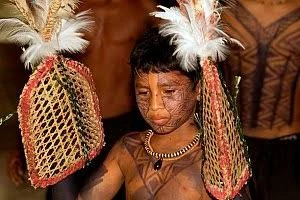Adonis and Aphrodite is a classic tale from Greek mythology that touches on themes of love, lust and rejection. Adonis is the mortal personification of masculinity that captured the heart of the Goddess of love Aphrodite. But did it, as is usually the case, inevitably all go wrong for this beautiful couple? Let’s find out together.
It is said that Adonis was born of the illicit union between King Theias of Smyrna and his daughter Myrrha. Urged on by Aphrodite herself, the goddess of beauty, love and sexual desire, who had been offended when King Theias forgot to make a sacrifice for her, Myrrha had made amorous advances towards her father but he was successfully keeping her away.
One night, she managed to lure her father out into the open and there under cover of darkness she laid with him. As dawn broke, Theias discovered to his utter disgust the deception of his daughter and with sword in hand chased her into the wild, wanting to punish her for her audacity. Sensing Myrrha’s necessity, Aphrodite transformed her into a tree, the myrrh tree.
Still in anger, Theias shot an arrow into the tree trunk, splitting it wide open and it was from there that Adonis was born. Baby Adonis was adorable beyond words and since there was no one to look after him, Aphrodite took him under her wing. So obsessed was she with him that she began neglecting her duties as a goddess.
As a remedial measure, she sent the child to be looked after by Persephone, the Queen of the Dead in the Underworld. It was also a move to keep him away from interfering eyes. However, Persephone, too, fell dearly in love with Adonis and refused to give him up when Aphrodite came for him. There was a bitter argument and Zeus had to intervene to prevent a disastrous argument between the two.
He decided that every year Adonis would spend 4 months first with Persephone, the next 4 months with Aphrodite and the last 4 months he would be left alone, so that he may learn to look after himself. Adonis grew up to be a very handsome young man and one look at him could make every woman’s heart excited with desire. That excitement was also in the heart of the goddess Aphodite, who was extremely charmed by this young man.
Adonis loved the great outdoors and was a master of the hunt. On one fateful day, when Aphrodite was to go away for a few days, she warned Adonis not to stray too far into the forest while hunting. At the same time, she told him to stay away from any beast that did not run away from him. However, the heart of young Adonis was audacious and neglecting Aphrodite’s warning he plunged deep into the forest.
Related: The story of Medusa, the betrayed priestess of Greek Mythology.
There he came upon a wild boar and, no matter how much he tried, he could not scare it away. The boar, angered, attacked Adonis and with one massive heave of its head pierced the young man with its tusk. It is said that the boar which killed Adonis was no ordinary beast but the god Ares, who was one of Aphrodite’s many lovers.
Jealous of her passion for Adonis, Ares, disguised himself in the form of a boar and attacked the young man. Hearing the screams of her beloved Adonis, Aphrodite immediately headed for the forest, where she found him taking his last breath. Kneeling by his side, she sprinkled nectar over the wound and to ease his pain she sang gently to him. A smile caressed Adonis’ countenance, as he silently passed away into the Realm of the Dead.
The nectar that Aphrodite sprinkled on Adonis’ wound had turned the droplets of his blood into beautiful red anemones, while the rest of his blood flowed, becoming the river Adonis, which is today known as the river Nahr Ibrahim in coastal Lebanon. Persephone greeted Adonis with arms wide open as he entered the underworld and her delight knew no bounds.
At the same time, Aphrodite, knowing that her Adonis must be in the clutches of Persephone, rushed to the underworld to bring him back. Once again, Zeus had to intervene and stop the women from quarrelling over who would have rightful possession of Adonis. With great patience he told them that henceforth, Adonis would spend half the year with Aphrodite and the other half with Persephone.
Some believe this may symbolise the life of a man, who spends half his life with his mother and half his life with his wife, whilst others suggest it represents the cycle of rebirth in the seasonal plant life of the world.









